- Home
- Catherine Coulter
Night Storm Page 2
Night Storm Read online
Page 2
He said softly, “Hush, little one, it’s all right. You’ll eat soon enough.”
The baby stopped a moment on hearing the strange deep voice and opened her vague eyes very wide, looking toward the sound. Her eyes were the color of the North Sea during a wild storm. Dark, dark blue, and deep. Just like his.
“No,” Alec said. He held the squirming body away from him. “No.”
The small body heaved and strained against the unaccustomed hands. Alec held her away from him until he couldn’t bear it. He gave it up then and drew his daughter to his shoulder, crooning meaningless words and sounds over and over, softly, again and again. To his astonishment, she hiccuped several times, stuffed her fist into her mouth, and put her head on his shoulder. Her small body shuddered again, then grew quiet. For an instant he was terrified again, that she was dead. But no, she’d fallen asleep. He was holding her and she was asleep. Alec looked blankly around him. What was he to do now?
He eased down into a rocking chair that faced the fireplace. He pulled a wool shawl over Hallie and began to rock.
He lulled himself to sleep. Nan and Mrs. MacGraff stood in the open doorway and stared.
“It’s amazing,” said Mrs. MacGraff. “His lordship hasn’t been up here before.”
Nan held her own child against her milk-swelled breasts. She hurt. “I must feed Hallie,” she said.
Alec awoke at the low sound of women’s voices. He turned to look at Nan. “She’s asleep,” he said simply. “I’ve been rocking her.”
Nan blurted out, “She looks just like you. I wondered, but I didn’t—” She broke off, appalled at herself.
Alec rose, waking Hallie as he did so. She reared back against his hand, stared vaguely up at him, and bellowed. Alec grinned. “She needs you, Nan.”
He watched Nan lay down her own child, then take Hallie from him with competent hands. “After the babe is asleep, I want to speak to you. Ask Mrs. MacGraff to show you to the library.”
He nodded to the two women and left the nursery. His step was light, his shoulders squared. He at last felt something that wasn’t pain.
One
ABOARD THE BARKENTINE NIGHT DANCER NEAR CHESAPEAKE BAY OCTOBER 1819
Alec Carrick stood on the deck near the Dancer’s wheel, half his attention on the beating canvas of the square-rigged foremast, and half on his small daughter, who was sitting cross-legged in the middle of a huge circle of coiled hemp on the quarterdeck, practicing her knots. From his position, she looked to be perfecting her clove hitches. She never took on a new task, or in this case, went on to a new knot, until she’d gotten the previous knot just exactly to her liking. He recalled she’d spent upwards of two days on her rolling hitch before Ticknor, the Night Dancer’s second mate, a young man of twenty-three who hailed from Yorkshire and blushed like a schoolgirl at any jest, had finally talked her around, saying, “Now, now, Miss Hallie, ’tis enough. Ye’ve got it, aye, ye have. We don’t want yer fingers to be callused as a snail’s, now do we? We’ll show yer papa, an’ jes’ see if he don’t say it’s perfect.”
And Alec had praised the rolling hitch. God forbid snail calluses.
Hallie was dressed like any of his sailors in a red-and-white-striped guernsey and blue denim dungarees. And, like his sailors’, they fitted her small body like a glove, flaring out at the feet so that, in theory, she could easily roll them up to wash the deck or shinny up the rigging. She was wearing a straw tarpaulin hat, its broad brim giving a decent runoff of drizzle when it rained, and tar and oil keeping it black and waterproof. Most important, it protected Hallie’s face from the sun. She was fair-complexioned and it worried Alec, until he’d managed to convince her never to remove her hat during the daylight hours on deck. He’d told her that he didn’t want her to be the first four-year-old with weathered leather skin like old Punko’s, the sail-maker.
Hallie had raised her blue eyes to his face and said, “Papa, really, I’m very nearly five now.”
“Sorry,” he’d said, and pulled the hat almost to her eyebrows. “If you’re nearly five, that makes me a very old man. I’ll be thirty-two not too long after you’re five.”
Hallie studied him with intense scrutiny. She shook her head. “No, you’re not old, Papa. I agree with Miss Blanchard. You’re beautiful. I don’t know much about Greek coins, like Miss Blanchard must, but even Mrs. Swindel sometimes just stares at you.”
“Miss Blanchard,” Alec repeated in a thin, stunned voice, disregarding the rest of his daughter’s confidences.
“She was here once, don’t you remember? Last May, when we were in London. You brought her here to visit. She was laughing and telling you how beautiful you were and how she wanted to do things to you, and you told her that her bottom was equally something to see and that—”
“All right, that’s enough,” Alec said, quickly closing his hand over his daughter’s mouth. He saw Ticknor staring at him, his hand over his own mouth to keep in his chuckles. “Quite enough.” He felt a large dose of guilt and an insane urge to laugh. He remembered that afternoon some five months before. He’d thought Hallie was with Mrs. Swindel, her nanny, in their London town house, so when Eileen Blanchard had begged to visit one of his ships, he’d brought her. He groaned to himself. At least he hadn’t made love to her. Hallie might just have walked in on them and asked for an explanation in that calm, quite curious little voice of hers.
Alec grinned toward his daughter. Hallie was precocious, something of a handful, very serious, so beautiful he sometimes felt tears sting his eyes just looking at her, and she was his. A gift from a God who had forgiven him his rantings, his frozenness, and his initial bitterness.
Hallie, now, was also barefoot, her small feet as brown and tough as any of the sailors’. Her toes were wiggling to the beat of Pippin’s sea chantey, a funny tale of a captain who managed to lose his ship and all his booty to the devil because he was too stupid to understand that a pitchfork and a tail were something out of the ordinary. Pippin was Alec’s cabin boy on board ship and his valet-in-training on land, a bright lad of fifteen whose mother had left him on the steps of St. Paul’s, a lad who worshipped him and adored Hallie.
Alec looked up at the foremast. The wind was northwesterly and steady. They were drifting leeward. “Mr. Pitts, bring her in a bit,” he called to his first mate, Abel Pitts, who had been with him for six years and knew a ship’s ways as well as he knew his captain’s ways.
“Aye, Capt’n,” Abel called back. “I was looking at that bloody albatross. He’s leading us a merry chase and it ain’t close-hauled he wants to be.”
Alec grinned and looked out over the horizon. The albatross, its wing span a good fifteen feet, was dipping and churning, racing back to the barkentine, then sheering off again. It was a beautiful early October day, the sun heavy and bright, the sky a rich blue and dotted with the whitest of clouds, the ocean calm, the waves gentle and rolling. They would reach Chesapeake Bay by morning if the wind held, and he would be visiting Mr. James Paxton in Baltimore after they’d navigated the one hundred and fifty miles of bay to reach the inner basin. He’d see Mr. James Paxton or his son, Mr. Eugene Paxton, he amended to himself.
Mr. Pitts called out, “There’s Clegg, Capt’n. He’s got your lunch ready. And Miss Hallie’s.”
Alec nodded and waved to Clegg, as wide in the beam as he was tall and blessed with the sunniest nature of anyone aboard the ship. Alec made his way to his daughter. She was concentrating so intently at first she didn’t see him. He merely waited, content to marvel at the splendid little creature he’d produced. She was so different from him and from Nesta. “Hallie,” he said quietly so as not to startle her.
Hallie looked up and gave him a wonderful smile. “Papa, look.” She thrust the knot under his nose. “What do you think? Your honest opinion, Papa. I can take it.”
“Why, I do believe it’s the best square knot I’ve ever seen.”
“Papa, it’s not a square knot, it’s a clove hitch!”
&n
bsp; “Hmm. I believe you’re right. Let me study it a bit more over lunch. You hungry, pumpkin?”
Hallie jumped to her feet and rubbed her palms on her pant legs. “I could eat a sea dragon.”
“Lord, I hope not. Just think of all those scales catching between your teeth.”
Hallie scampered through the hatch and down the companionway to his cabin and followed him inside. It was a spacious cabin despite the fact that the ceiling was but two inches taller than Alec. It was airy with the two stern windows and rather elegant with the fastened-down table, wide bunk, and desk of finely carved mahogany. The port wall held bookshelves filled with nautical books, naval histories, charts, London newspapers, and copies of every issue of the British Nautical Almanac, as well as Hallie’s readers and grammars. There was a connecting door between this cabin and Hallie’s. Hers was much smaller but it didn’t matter, for she usually only slept there. She even played in Alec’s cabin in the evenings. It was rare that he was apart from his daughter. “Sit down, Hallie. What do we have, Clegg?”
“Fresh cod, Capt’n. Ollie caught a good dozen this morning. Boiled potatoes to keep Miss Hallie as healthy as a little sea rat, and the last of the string beans. Thank the good Lord we’ll reach port tomorrow, else the little lady here would be chewing her teeth off with salt horse.”
Alec fancied that the captain’s table was always better when Hallie was aboard. He realized that she hadn’t washed her hands, but then again, he hadn’t washed his either. He watched her eat, slowly and intently, as she did most things. He waited, knowing that after a half-dozen well-chewed bites, she’d want to talk, or rather, hear him talk.
Just before the seventh bite, she said, “Tell me about the Baltimore clippers, Papa.”
They’d been through this several times before, but Hallie never tired of hearing about the clippers. Alec swallowed a bite of cod and took a sip of wine. “Well, it’s just as I told you, pumpkin. The Baltimore clipper is really a two-masted schooner. It’s sleek and fast because it can sail so close to the wind. Its masts are a good fifteen feet taller than our barkentine’s. And the clippers are small, you’ll remember, not usually more than one hundred feet long with wide uncluttered decks. And they sit real close to the waterline.”
Hallie was sitting forward now, her elbows on the table, her chin propped up on her hands. “That’s right, Papa. She isn’t much good in the North Atlantic, where there are a lot of storms. Waves would wash right over her decks and the winds would tear down her masts. But she can maneuver quickly, so no frigate or brig or snow or bark can catch her.”
“That’s right. She’s lightly built and can duck and hide and race and turn faster than the albatross. Our English Navy holds a deep hatred for the Baltimore clipper, and with good reason. The American privateers, a Captain Boyle in particular, humiliated our fellows during the war. Eat your lunch, Hallie.”
Hallie managed one bite. “Do they hate us in return, Papa? We’re English, after all.”
“Hopefully not as much anymore, but don’t expect the Baltimoreans to welcome us with open arms, pumpkin. I told you once that they managed to keep our British troops out of their city, but the Washingtonians failed. They’ve got quite a rivalry there themselves.”
“They’ll welcome you, Papa. The gentlemen like you because you’re so witty and smart. And the ladies will follow you about because you’re so beautiful and charming.”
“Eat your lunch, Hallie.”
Alec insisted that she have an afternoon nap, and after he’d endured the ritual complaints from his daughter and finally gotten her to stretch out on her bunk, her favorite blanket pulled up to her chin, he returned to his cabin, sat down at his mahogany desk, and withdrew the letter from the top drawer.
Dear Lord Sherard:
My father tells me he met you some three years ago in New York. He has followed your career in shipping and is impressed with your acumen and skills. (More impressed with my ready guineas, Alec thought.)
To refresh your memory, my father and I own a shipyard here in Baltimore and we have built the most stalwart Baltimore clipper schooners to sail the seas for the past twenty years. I am not bragging, my lord. It is true. However, since the end of the war, as you probably know, there has been a severe economic setback, not only in ship building but in our major exports of tobacco, flour, and even cotton. It is all mixed up with the New Englanders and their damnable demands for higher and higher tariffs.
In any case, my father knows of your reputation and would like to meet with you regarding a possible partnership between us. The Baltimore clipper, as you know, is the most efficient vessel for the Caribbean trade, and our clipper schooners are the very best. I ask that you will consider a merger or partnership between us. I hope you will come to Baltimore soon. My father is unable to travel to England at this time.
Yours, etc.,
Eugene Paxton
Paxton Shipyard
Fells Point, Maryland
The letter was dated two and a half months earlier, in August. Alec was interested. He was, in fact, more than interested. The letter from Paxton’s son had greatly simplified the current economic problems facing the United States. Indeed, the Paxton shipyard was probably in deep financial trouble. Perhaps he could do better than a partnership; perhaps he could buy controlling interest in the shipyard. He’d wanted to build his own ships for several years now. He’d wanted to be the major force in the Caribbean trade, and with Baltimore clippers in his fleet, he could become exactly that. His current fleet included the ship he himself sailed—the barkentine Night Dancer—two brigs, one schooner, and a snow. To see a Baltimore clipper maneuver in the smooth clear water of the Caribbean would be nothing less than sheer pleasure. With its speed and ability to sail close-hauled, it could beat any other vessel of the day. It was limited, he knew, to the mild climates because of the very construction that made it so fast, and would most probably lose at least one mast in a North Atlantic storm. But it didn’t matter. He didn’t need any more vessels to dare the unpredictable northern seas, or the Cape, for that matter.
If he wasn’t mistaken, and he didn’t think he was, there were undercurrents of desperation in Paxton’s letter. So much the better. He would have the upper hand in the negotiations.
He folded the letter and slipped it into the desk drawer. He leaned back in his chair. It was at times like this when he thought not about the empire he wanted to build, but rather about the life he led and the life his small daughter led with him. It was irregular, to say the least. But he’d be damned if he’d ever leave her to be raised by someone else, even her aunt Arielle and uncle Burke, who now had two little boys of their own. If Hallie was different from other girls her age, well, so be it. It wasn’t important. And on the occasions when he thought about the life Hallie led with him, Alec also thought about Nesta and what she would have felt about it. He experienced the time-faded pain at Nesta’s memory. It wasn’t a deep pain anymore, just a gentle sadness for what had been and what had passed. His last visit to his childhood home, Carrick Grange, had been the past February. From there he and Hallie had traveled to France, Spain, and Italy. He’d even taken her to Gibraltar, where she’d dined with the English governor, Sir Nigel Darlington.
With him and Hallie had come Mrs. Swindel, her starchy nanny, whose sharp tongue intimidated just about everyone except Dr. Pruitt, Alec’s physician. There was a romance brewing there, if Alec’s nose was sniffing aright. Well, it wouldn’t matter if Mrs. Swindel left his employ. Hallie didn’t really need her anymore. She was becoming quite grown up. Except, he amended silently to himself with a grimace, when Hallie didn’t want to go to bed or have her bath in the big copper tub or have all the tangles brushed out of her thick hair. She always wailed, whined, and carried on like a deprived orphan.
He remembered Hallie’s comments about Eileen Blanchard. Lord, that had been an experience. Eileen had quite calmly slipped her hand into his breeches and fondled him, all in the dim companionway where any o
f his crew could have come at any time. He’d been without a woman now for several months. It was calmer without the inevitable scenes, but it was also more lonely. And he was randy. Always randy. He supposed he should remarry, but finding the right lady to be Hallie’s mother was a task that boggled his mind. A lady who would mother a nearly five-year-old who was a sailor? A little girl who’d worn petticoats and skirts perhaps a total of six times in her life? And who was quite vocal in her dislike of such fibberish things? No, he couldn’t picture such a lady, nor did he really want to. He didn’t want to remarry. Ever.
Alec looked up to see Hallie rubbing her fists in her eyes, standing in the open doorway between their cabins. He smiled at her and opened his arms. She walked to him and allowed him to lift her into his lap. She curled up against him and resumed her nap.
Genny Paxton wasn’t having it, not a bit of it, and she said so, not mincing matters.
“You’ve done a poor job, Minter, and it must be redone. Now.”
Minter complained and whined, but Genny stood firm.
The new clipper, one hundred and eight feet long, with her rigged two topsails, would be the pride of the Paxton shipyard. But not with sloppy work on the mizzen peak halyard.
Minter shot her a dirty look, sneering as was his habit but silently of course, about her dressing like a man and striding about on board the boats and climbing up the rigging, showing off her woman’s legs and hips. It was disgraceful, and if she were his wife, he wouldn’t allow it. He’d give her what for, perhaps slap her into obedience. Giving a man orders! Still, a man had to eat, damn and blast. He began reworking the halyard.
Genny nodded, saying nothing more. She had a very good notion what went on in Minter’s excuse for a brain, but she wouldn’t fire him. He was good at his job so long as there was someone about to check his work.

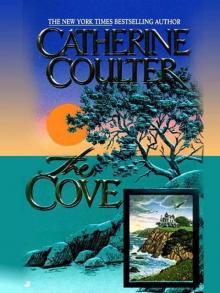 The Cove
The Cove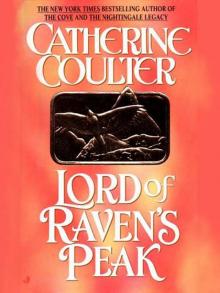 Lord of Raven's Peak
Lord of Raven's Peak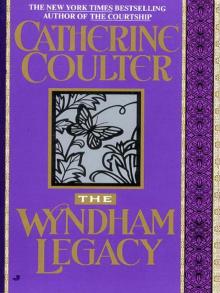 The Wyndham Legacy
The Wyndham Legacy The Strange Visitation at Wolffe Hall
The Strange Visitation at Wolffe Hall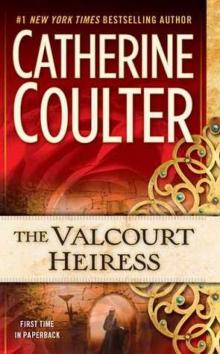 The Valcourt Heiress
The Valcourt Heiress Bombshell
Bombshell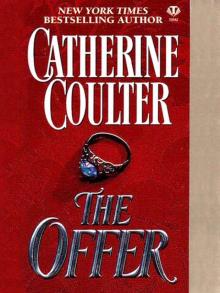 The Offer
The Offer The Edge
The Edge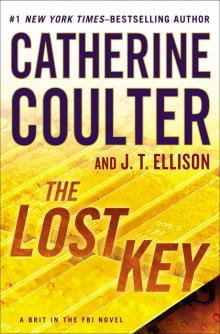 The Lost Key
The Lost Key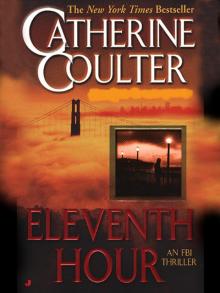 Eleventh Hour
Eleventh Hour Blindside
Blindside Devil's Daughter
Devil's Daughter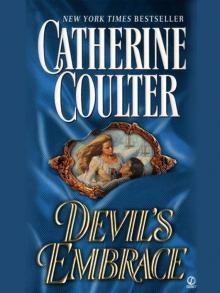 Devil's Embrace
Devil's Embrace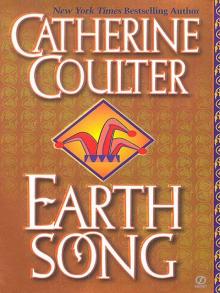 Earth Song
Earth Song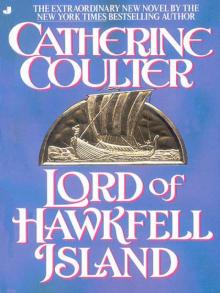 Lord of Hawkfell Island
Lord of Hawkfell Island Calypso Magic
Calypso Magic Lyon's Gate
Lyon's Gate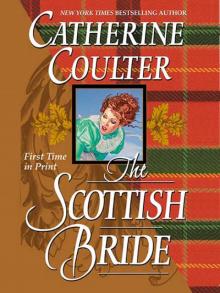 The Scottish Bride
The Scottish Bride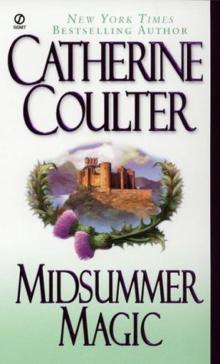 Midsummer Magic
Midsummer Magic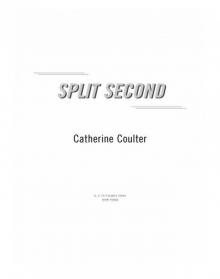 Split Second
Split Second Enigma
Enigma Blowout
Blowout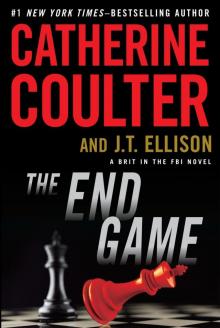 The End Game
The End Game Double Take
Double Take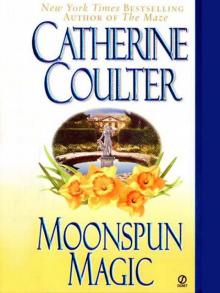 Moonspun Magic
Moonspun Magic The Courtship
The Courtship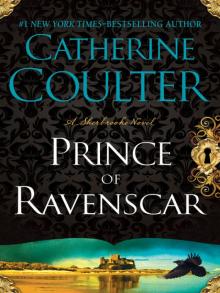 Prince of Ravenscar
Prince of Ravenscar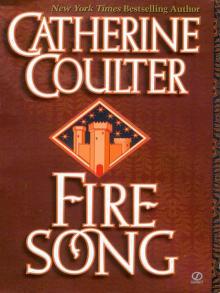 Fire Song
Fire Song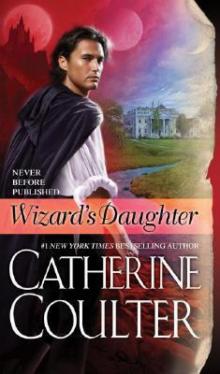 Wizard's Daughter
Wizard's Daughter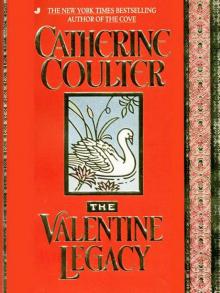 The Valentine Legacy
The Valentine Legacy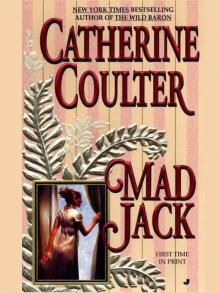 Mad Jack
Mad Jack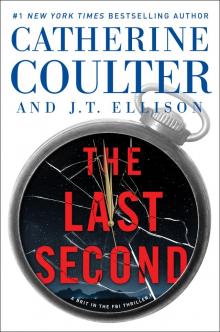 The Last Second
The Last Second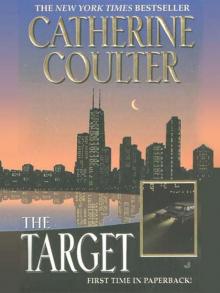 The Target
The Target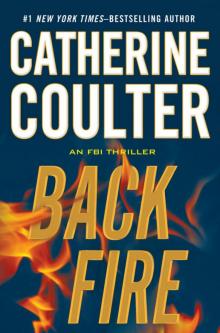 Backfire
Backfire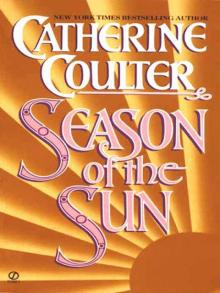 Season of the Sun
Season of the Sun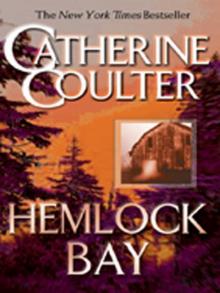 Hemlock Bay
Hemlock Bay Insidious
Insidious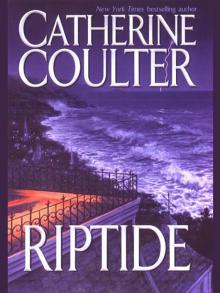 Riptide
Riptide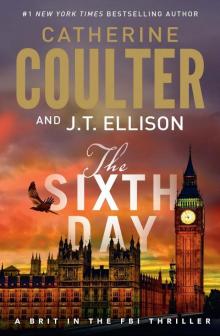 The Sixth Day
The Sixth Day Secret Song
Secret Song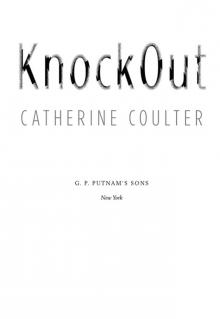 KnockOut
KnockOut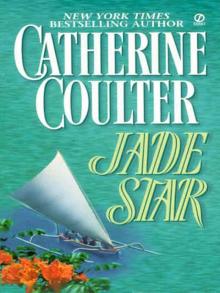 Jade Star
Jade Star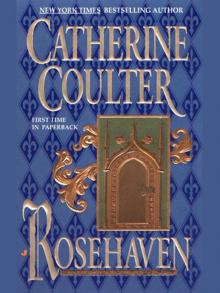 Rosehaven
Rosehaven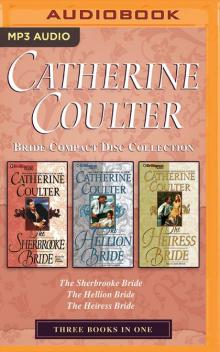 The Hellion Bride
The Hellion Bride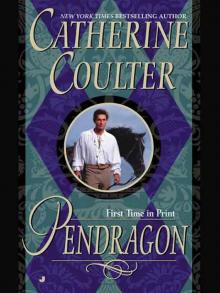 Pendragon
Pendragon Vortex
Vortex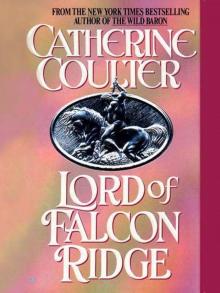 Lord of Falcon Ridge
Lord of Falcon Ridge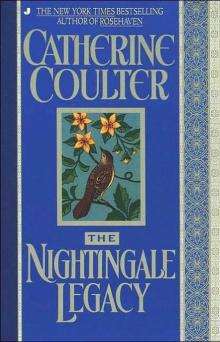 The Nightingale Legacy
The Nightingale Legacy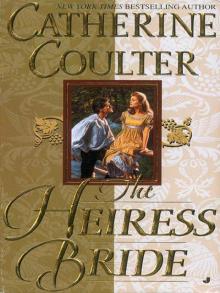 The Heiress Bride
The Heiress Bride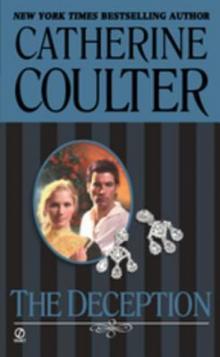 The Deception
The Deception The Maze
The Maze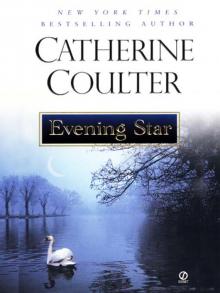 Evening Star
Evening Star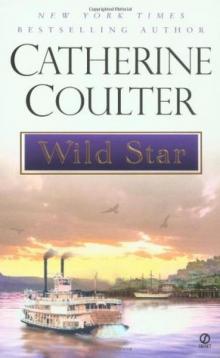 Wild Star
Wild Star The Final Cut
The Final Cut Paradox
Paradox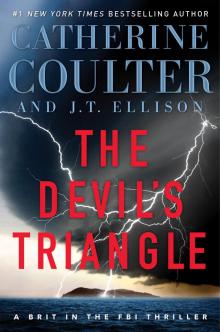 The Devil's Triangle
The Devil's Triangle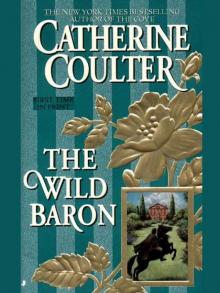 The Wild Baron
The Wild Baron Point Blank
Point Blank Labyrinth
Labyrinth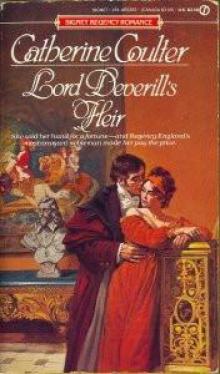 Lord Deverill's Heir
Lord Deverill's Heir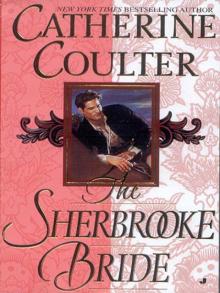 The Sherbrooke Bride
The Sherbrooke Bride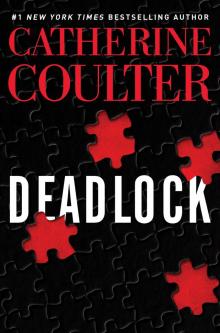 Deadlock
Deadlock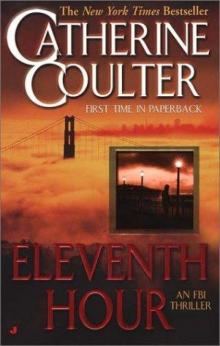 Eleventh Hour f-7
Eleventh Hour f-7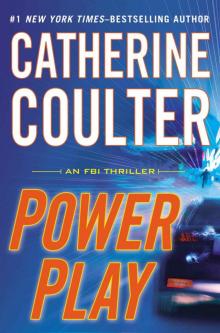 Power Play (An FBI Thriller)
Power Play (An FBI Thriller)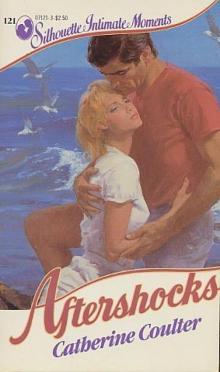 Aftershocks
Aftershocks Sherbrooke Twins tb-8
Sherbrooke Twins tb-8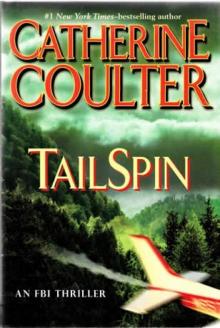 Tail Spin ft-12
Tail Spin ft-12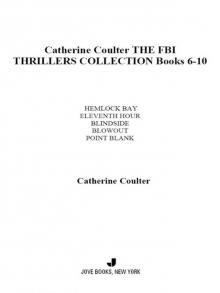 The FBI Thrillers Collection
The FBI Thrillers Collection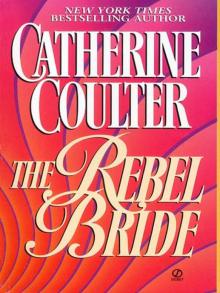 The Rebel Bride
The Rebel Bride Blindside f-8
Blindside f-8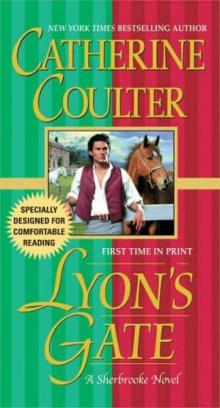 Lyons Gate tb-9
Lyons Gate tb-9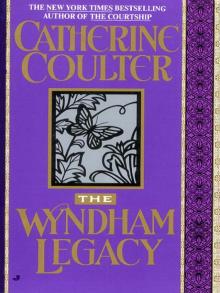 Wyndham Legacy
Wyndham Legacy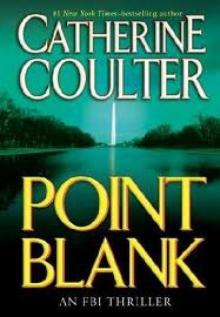 Point Blank f-10
Point Blank f-10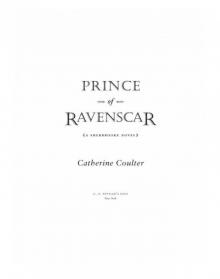 The Prince of Ravenscar
The Prince of Ravenscar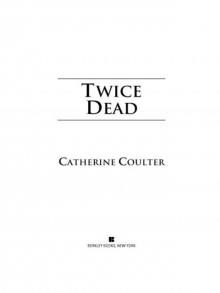 Twice Dead
Twice Dead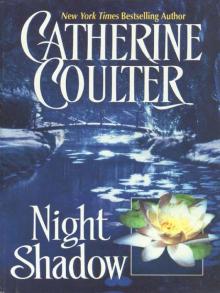 Night Shadow
Night Shadow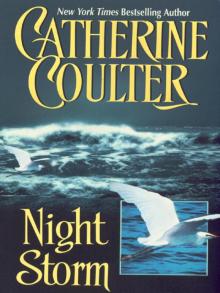 Night Storm
Night Storm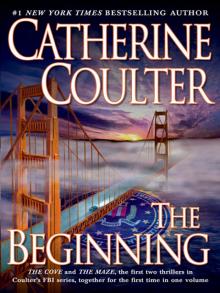 The Beginning
The Beginning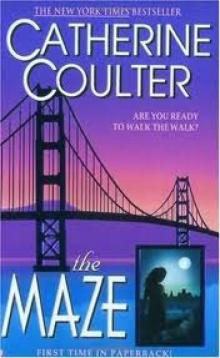 The Maze ft-2
The Maze ft-2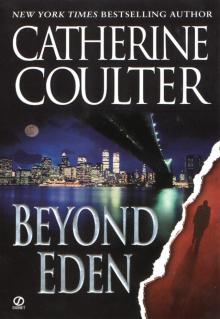 Beyond Eden
Beyond Eden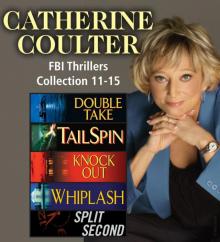 The FBI Thrillers Collection: Vol 11-15
The FBI Thrillers Collection: Vol 11-15 FALSE PRETENSES
FALSE PRETENSES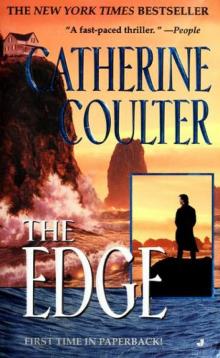 The Edge f-4
The Edge f-4 Bombshell (AN FBI THRILLER)
Bombshell (AN FBI THRILLER) The Ancient Spirits of Sedgwick House (Grayson Sherbrooke's Otherworldly Adventures Book 3)
The Ancient Spirits of Sedgwick House (Grayson Sherbrooke's Otherworldly Adventures Book 3)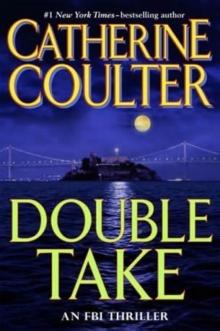 Double Take ft-11
Double Take ft-11 The Heir
The Heir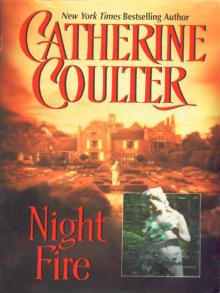 Night Fire
Night Fire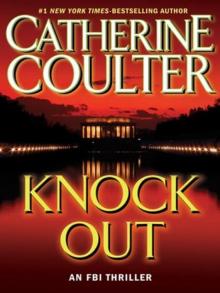 KnockOut ft-13
KnockOut ft-13 Hemlock Bay f-6
Hemlock Bay f-6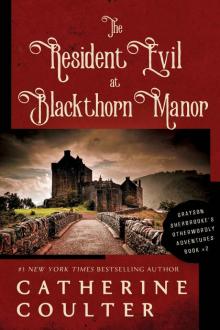 The Resident Evil at Blackthorn Manor (Kindle Single) (Grayson Sherbrooke's Otherworldly Adventures Book 2)
The Resident Evil at Blackthorn Manor (Kindle Single) (Grayson Sherbrooke's Otherworldly Adventures Book 2) Blowout ft-9
Blowout ft-9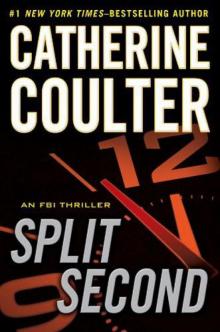 Split Second f-15
Split Second f-15 The Sherbrooke Series Novels 1-5
The Sherbrooke Series Novels 1-5 Impulse
Impulse Paradox (An FBI Thriller Book 22)
Paradox (An FBI Thriller Book 22)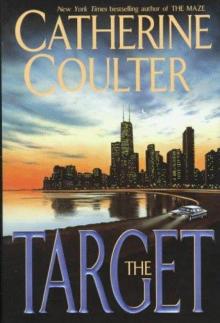 The Target f-3
The Target f-3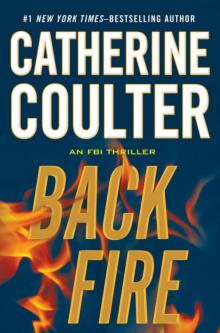 Backfire fst-16
Backfire fst-16 Born To Be Wild
Born To Be Wild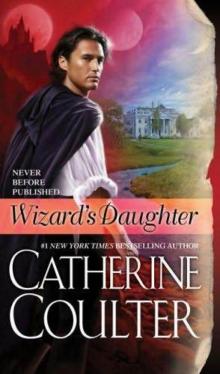 Wizards Daughter tb-10
Wizards Daughter tb-10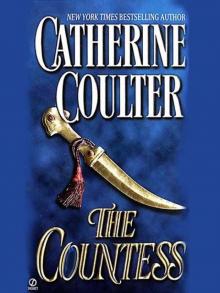 The Countess
The Countess